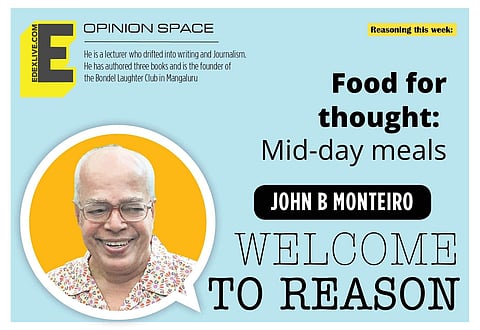

Mens sana in corpore sano, a Latin phrase, is usually translated as "a healthy mind in a healthy body". The phrase is widely used in sporting and educational contexts to express the theory that physical exercise is an important or essential part of mental and psychological well-being.
The phrase comes from Satire X of the Roman poet Juvenal (born between AD 50 and 70 and died after 127 AD). It is the first in a list of what is desirable in life:
You should pray for a healthy mind in a healthy body.
Ask for a stout heart that has no fear of death,
and deems length of days the least of Nature's gifts
that can endure any kind of toil,
that knows neither wrath nor desire and thinks
the woes and hard labors of Hercules better than
the loves and banquets and downy cushions of Sardanapalus.
What I commend to you, you can give to yourself;
For assuredly, the only road to a life of peace is virtue.
Traditional commentators believe that Juvenal's intention was to teach his fellow Roman citizens that in the main, their prayers for such things as long life are misguided. Over time and separated from its context, the phrase has come to have a range of meanings. It can be construed to mean that only a healthy mind can lead to a healthy body, or equally that only a healthy body can produce or sustain a healthy mind.
A healthy body is not a matter of our choosing or wishing. According to a study published in mid-July 2021 by Nature Communications midday meals in schools leave a long-lasting impact and there had been lower stunting among children with mothers who had access to school lunches. Elaborating, the study said that girls who had access to free lunches provided in government schools had children with a higher height-to-age ratio than those who did not, said the study on inter-generational benefits of the midday meal scheme.
Using nationally representative data on mothers and their children spanning 23 years, the study showed that by 2016, the prevalence of stunting was significantly lower in areas where the scheme was implemented in 2005. The study noted that more than one in three Indian children are stunted or too short for their age – which reflects chronic under-nourishment. The fight against stunting has often focused on boosting nutrition for young children
This takes us to the New Testament of the Bible, Mathew Ch 4, written about the same time as Juvenal’s lines quoted above. Jesus was led into the wilderness to be tempted by the devil. And he fasted forty days and forty nights, and afterward, he was hungry. And the Devil came and said to him: “If you are the Son of God, command these stones to become loaves of bread”. But Jesus answered, “It is written, ‘Man shall not live by bread alone…’”
Two views were expressed two thousand years ago. How do they hold today in the context of midday meals in schools?
The subject is open to many views. What are yours?
